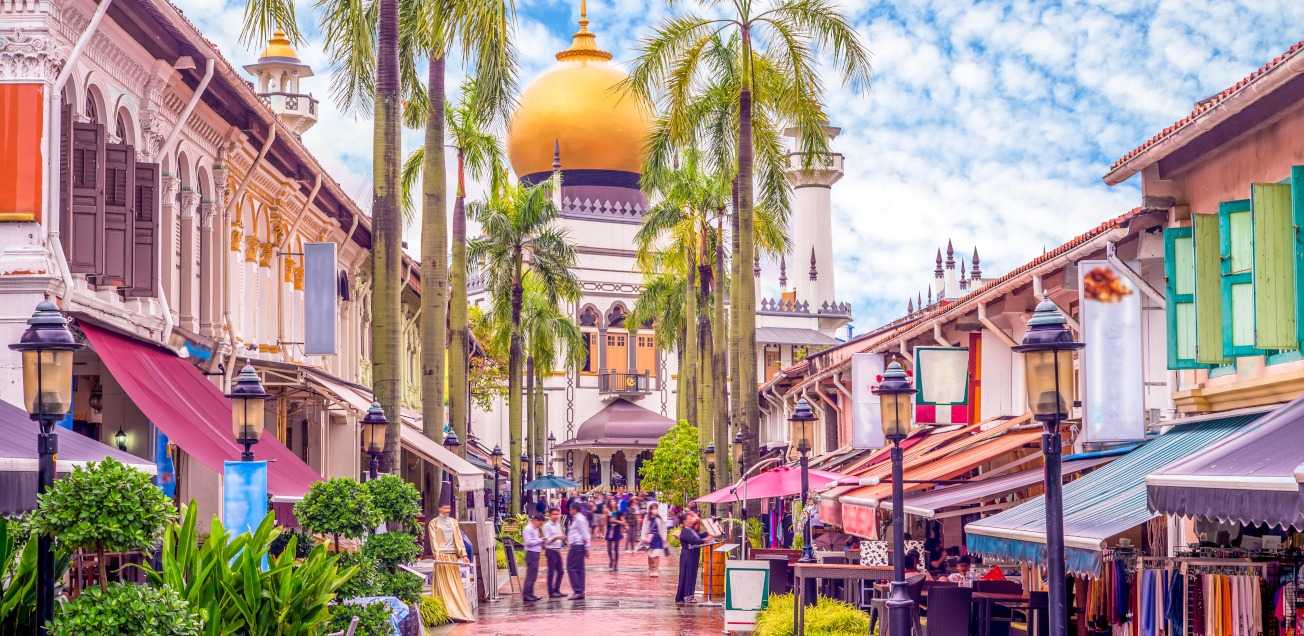Five Signs You’ve Truly Settled into Your Life Abroad
It doesn’t happen overnight, but there will be an exact moment after moving to a new country when you think “I’ve totally got this!”.
It is the undeniable feeling that you have settled into your new home and are a little more at ease with your new life and routine. This can come with excitement because you’ve conquered the mountain you never thought you could, along with a sense of sadness for the life which now lives in your past.
Here are five signs that you have successfully reached “experienced expat status” and settled into your life abroad.

Commanding the subway
This is perhaps the most internally satisfying feeling, which I’m sure many can relate to. It occurs when you exit whatever mode of public transportation you are on, and subsequently begin to stride in the exact direction you need to be going with confidence.
Not only do you know which stop to alight at, but also, you’re oriented enough to sidestep the false starts and confusion that always happened when you first moved.
Setting off in one direction only to realize that you’re heading in the opposite way you should be is a regular occurrence when you’re new to a city. The classic “deer in the headlights” look is all too familiar in the early weeks of relocating abroad, but when you’ve got this aspect of life down to a tee, nothing can stop you.
No more panic at the cashier
The second sign which leaves you feeling like a local is when you no longer have an anxiety attack as you reach the cashier desk after a mammoth grocery shop. You know exactly what they want from you.
“Yes, I’d like a receipt please” and “No thank you, I don’t need a bag!” are essential phrases for all foreign language learners and will get you out of many a sticky situation when you’re living in a country where you don’t know the native language.
This situation may have caused beads of sweat to form on your brow and your hands to turn clammy in the first few weeks of moving abroad, but you’ve got the intricate dance between cashier and customer choreographed and perfected now.

Amateur tour guide
Thirdly, the satisfying feeling that comes when you realize you can pass as a mediocre tour guide in your respective city every time friends and family come to stay.
Let’s face it, you might not get many tips, but you sure wouldn’t let them get lost or accidentally end up in another country on account of your poor navigation skills.
This responsibility allows you to really showcase your newly found (yet still limited) historical knowledge about your new home. Dazzle your visitors with vaguely accurate information about the historical significance of a particular street where someone notable is said to have died.
Coffee feeds the soul
An essential part of belonging to a city is finding your happy places, whether it’s a picturesque park, a cool bar, or even a museum or art gallery.
For me personally, all it takes is finding my favorite café to make me feel at home. I know I’ve found a good hideaway when I like the coffee, the cake, and the people.
I can escape there for rainy day reading sessions or as a pit stop before heading out to the shops. Knowing that this place exists makes me feel more secure in my new home and acts as a little recluse when I need to escape from the rest of the world.

Finding your people
Setting up a social network after you’ve moved abroad is a big undertaking. It takes time, patience, and copious amounts of beer, coffee, or tea to feel fully acquainted with your new friends.
But making the effort to meet as many local people from your area as well as fellow expats is an essential part of feeling settled. When you start recognizing faces on the street, or having brunch dates with friends on the weekend, you’ll find that time flies a little faster and you’ve started to establish roots.
Joining an activity such as hiking or book clubs, or attending events which are happening in your city, is one of the more effective ways to beat loneliness and make you feel at home.
It’s exciting and comforting to see what aspects of life make us feel like we’re settled. Each of these signs is a piece in the puzzle of expat life, and although there are many more, when you begin to realize you’ve conquered these, life abroad seems a little easier.
Advertisement
About Tegan Francis
As part of her degree in German and English Communication, Tegan Francis moved to Munich and worked as the Social Media Intern at InterNations.
Article topics
Related articles
Top 8 Things That Make New Zealand a Perfect Expat Destination
If you are considering moving abroad and looking for a destination in Oceania, taking a closer look at New Zealand may pay off: this a place to fall in love with. Here are eight good reasons to move to New Zealand.
The 6 Reasons Why Singapore Is So Popular for Expats
Singapore is a metropolitan city-state well known for its diversity and almost futuristic architecture. Located in the Malay Peninsula, in Southeast Asia, 29% of Singapore’s population are categorized as “non-residents” meaning that expats will never struggle to make new friends.
Why Female Friendships Are a Joy (Wherever You Go)
Female friendships are more than just an added bonus of living abroad, they’re a big source of comfort and joy for expat women. From mutual support to shared experiences and improved mental health, find out how having female friends can drastically improve your expat life!
Living Sustainably and Giving Back to Your Local Community
Sustainability and community go hand in hand! From food to free time, take a look at how you can make small changes to your routine to ensure that you are taking care of Mother Nature, while at the same time giving back to fellow citizens in your new home.
Five Things Your Friends at Home Are Tired of Hearing
Visiting home is always an exciting time for us expatriates. In some cases, you haven’t seen your friends and family for months, maybe even years, and you’ll obviously have many stories to tell. You’ll soon realize, however, that sometimes they just don’t want to hear them!




